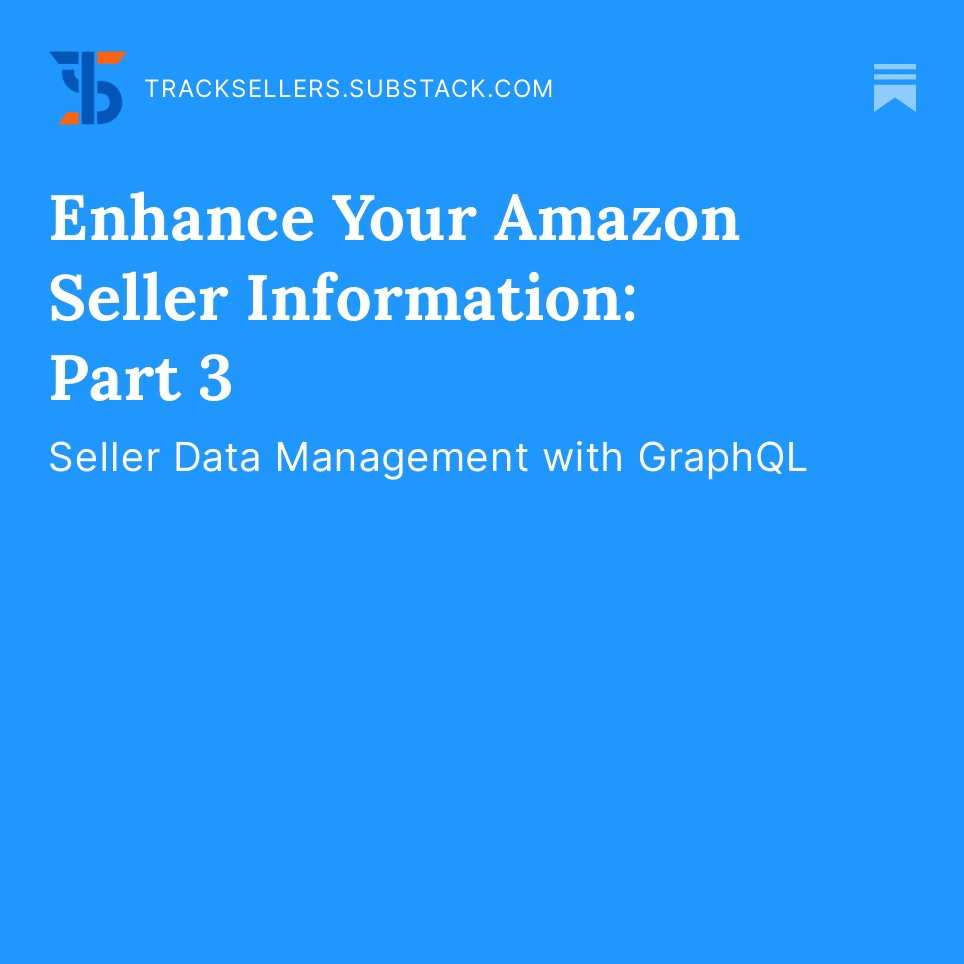Enhance Your Amazon Seller Information: Part 3
Seller Data Management with GraphQL
As developers, we're always looking for better ways to fetch and work with data. In recent years, GraphQL has emerged as a promising alternative to traditional REST APIs. At TrackSellers, we've embraced GraphQL and have seen significant benefits from using it to power our applications. We migrated all our backend systems to GraphQL from REST APIs last year and have seen significant improvements in both performance and developer experience.
Our GraphQL Journey
Our journey with GraphQL began a few years ago when we were building our website which required a flexible and efficient data layer. The first version of our backend system was built using REST APIs. We faced problems like over-fetching data, managing multiple versions as APIs evolved, integration and interoperability, etc.
We were intrigued by the idea of using GraphQL to allow clients to request exactly the data they needed, rather than over-fetching or under-fetching with REST APIs. After doing some research and experimenting with GraphQL, we decided to use it for our backend.
Since then, we've migrated all our applications to use GraphQL. We've found that it's easier to maintain a single GraphQL schema than multiple REST APIs and that GraphQL's type system makes it easy to understand the shape of our data.
GraphQL in Action
Our GraphQL schema defines the types of data we expose through our API, including marketplaces, categories, seller objects, and more. We designed our schema to be modular and easy to extend so that we can add new types and fields as needed.
We use a variety of data sources to power our GraphQL API, including SQL databases, NoSQL databases, and third-party APIs. GraphQL's ability to aggregate data from multiple sources has been especially helpful for us.
Our API clients use GraphQL to fetch seller data from our systems. We've found that GraphQL's query language is intuitive and easy to use and that it allows our clients to request exactly the data they need. This has led to faster load times and a better user experience overall.
Check out TrackSellers API docs for detailed schema and URL end-points. Please contact us if you are interested in becoming our API client.


